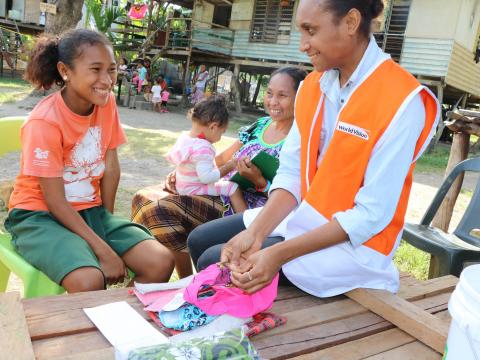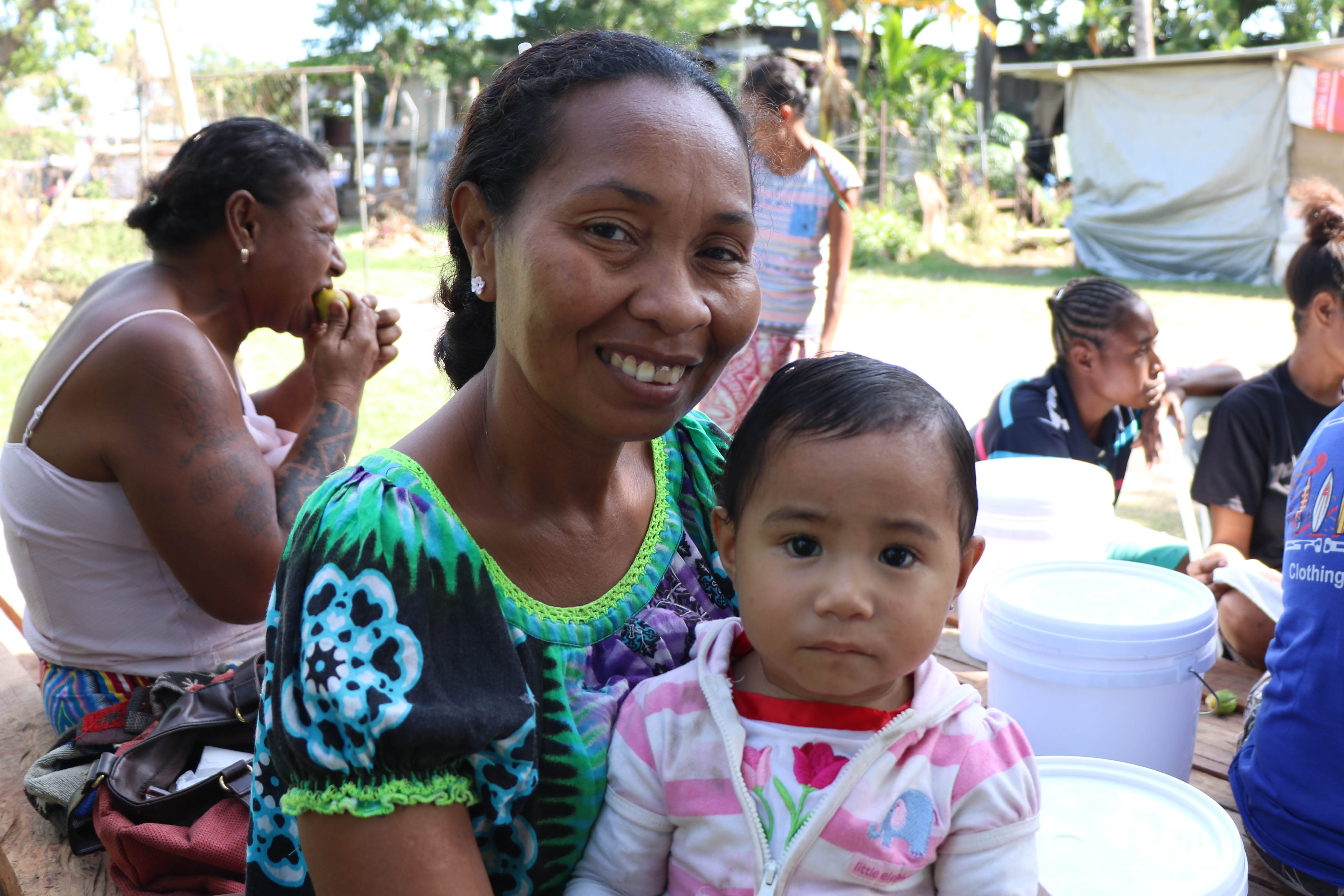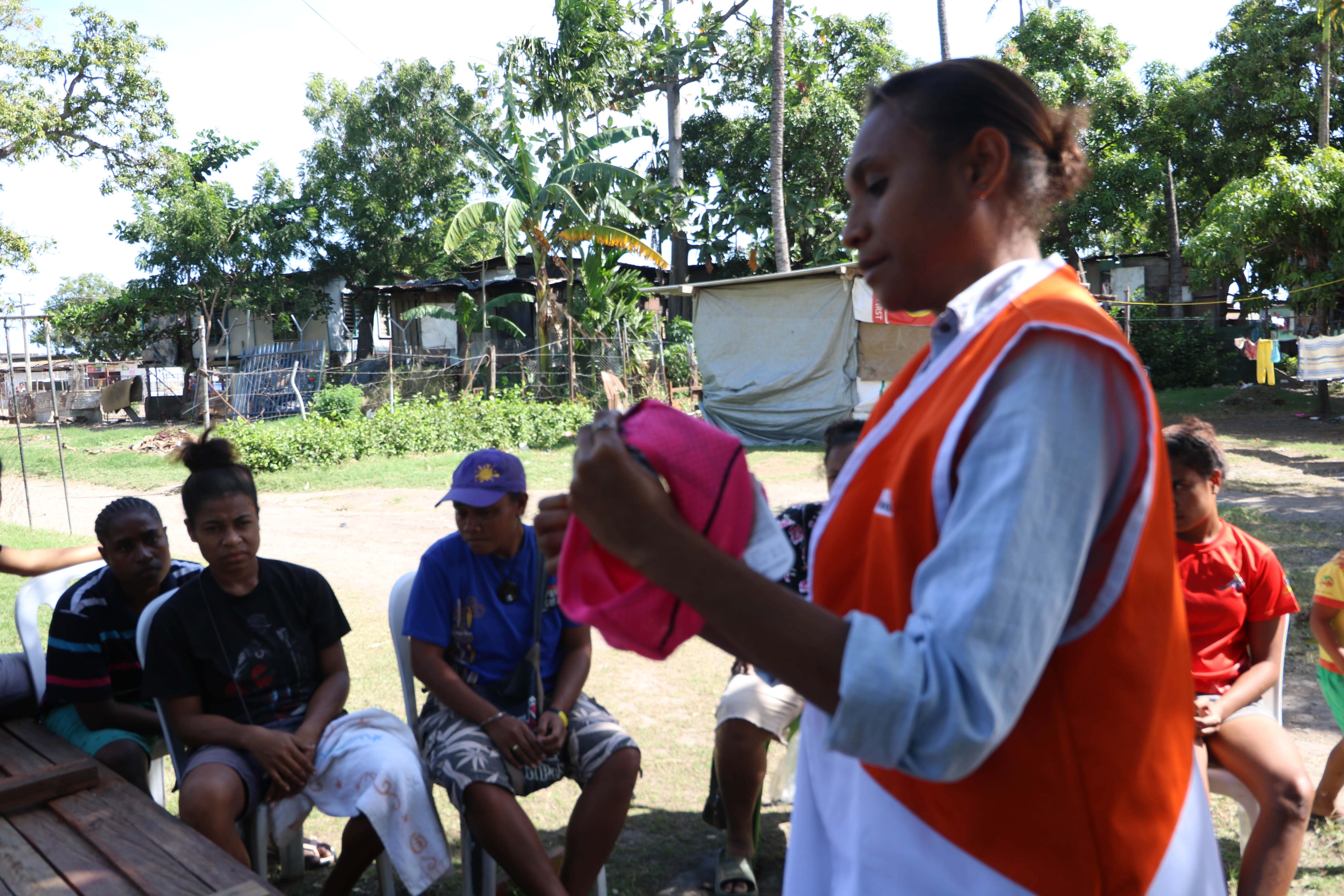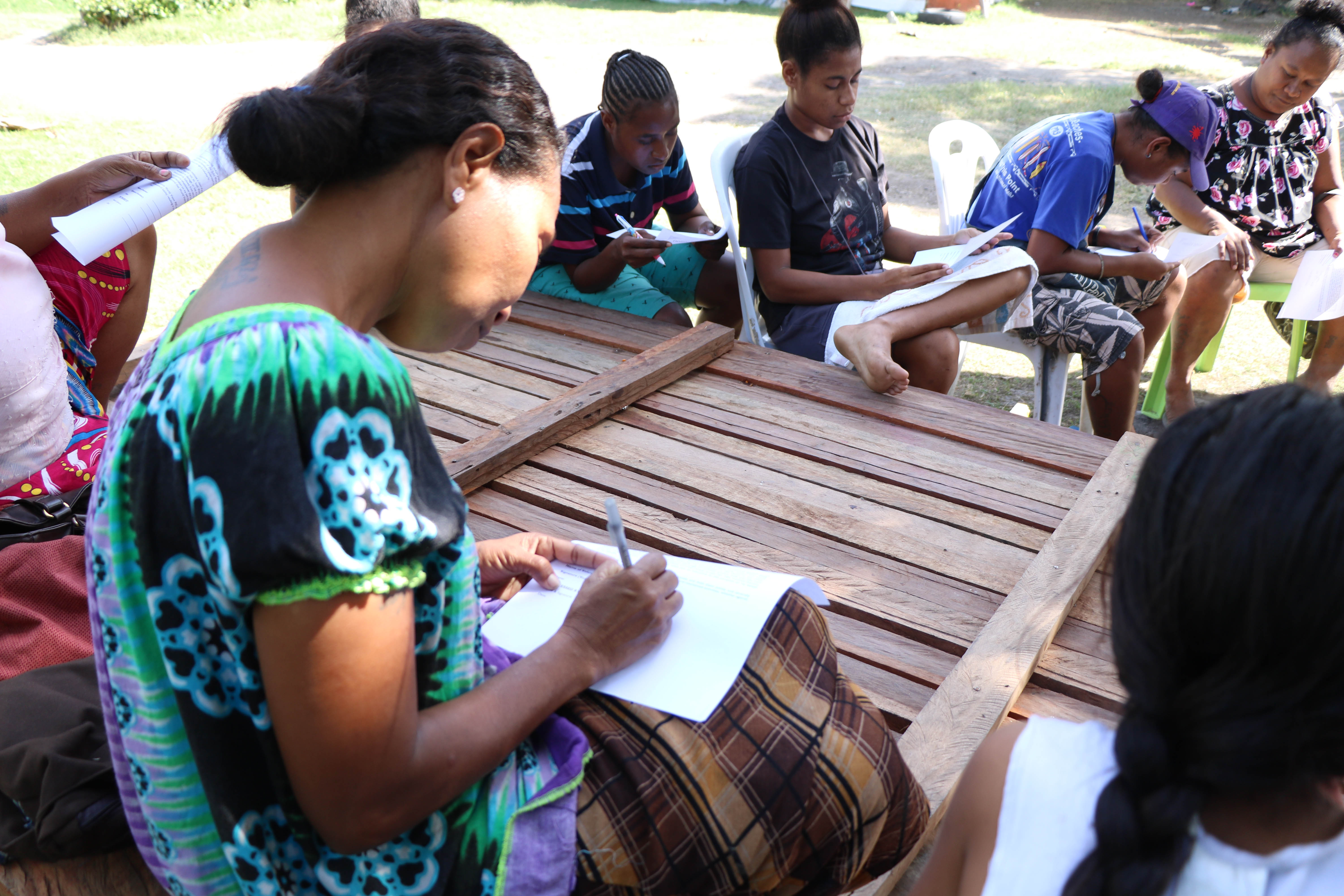Mun pads help women and the environment

June has been an anticipated month for 12 women in the indigenous community of Hanuabada in Port Moresby, Papua New Guinea.
After participating in a survey on “women’s views on reusable hygiene pads”, the 12 women patiently waited to be the first in their community to use the sanitary pads dubbed as mun pads.
Mun pads are washable cloth menstrual pads, which World Vision, through the New Zealand Government-funded Water and Healthy Life Project in Hanuabada, is helping introduce as an affordable and environment-friendly alternative to disposable sanitary pads and tampons, which are often too expensive for women from low income communities to afford.
“Many times I would see used sanitary pads and rubbish floating below houses and in the sea,” shared Dika Heni, 38 year-old mother of two children and one of the 12 participants to the survey. “This was never a good sight, but it happens almost every day,” she said.
Dika Heni, 38 year old mother of two, sits with her niece. (Photo: Maureen Lesley/World Vision PNG)
A big portion of the Hanuabada village is located near the coastline and many of its inhabitants have houses built on stilts over the ocean and on land near the sea.
Since 2016, World Vision has been helping communities in Hanuabada address water, sanitation, hygiene and solid waste issues that threaten the health and well-being of its 17,000 village residents. Menstrual hygiene management, a big component of the Project, helps mothers and their young daughters adapt good hygiene and sanitation practices to protect their health.
World Vision WASH Officer Claire Gangai explains to the women how to use the reusable pads.(Photo: Maureen Lesley/World Vision PNG)
“Most of the women in the community don’t always have ten kina (US$3.2) to spare for sanitary pads,” Dika said.
“For those who could afford, they don’t know how to dispose properly given the closely clustered houses and lack of areas for burning foul-smelled-items such as menstrual pads,” she added.
“The first time I heard about these reusable pads I was very happy because for a long time I used cloths for my menstrual cycle days and not plastic pads bought from the stores,” Dika shared.
“I believe that my fellow mothers will greatly benefit from the menstrual hygiene management training World Vision is providing us,” Dika said.
Dka Heni and fellow mothers sign-up to use the Mun Pads. (Photo: Maureen Lesley/World Vision PNG)
Dika Heni is a woman of influence in her community because she is the Deaconess of the church that most of her people belong to, which is the United Church.
“I am happy I can introduce mun pads to my 14 year old daughter, Kaiyah, who had her first period early this year,” she added.
Dikas intends to take Kaiyah under her wings to show her how to practice a clean hygiene behavior and become an advocate against plastic pollution” by using reusable mun pads.
Dika says attending World Vision surveys and awareness has made her realized how uninformed choices of disposing rubbish and unclean hygiene practices can harm her health and that of her family’s and her surrounding environment.


